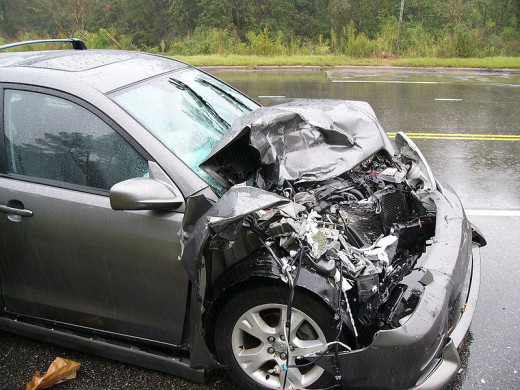What is a Tort? A Tort Law Primer
The Tort of Battery

Tort Law is about civil wrongs and legal remedies
A tort is a civil wrong, and it may also be a crime. A punch in the nose is the tort of battery, and may also be the crime of battery. Intentional torts are those actions that a tortfeasor actually intended to inflict. Intentional torts include: assault; battery; conversion (wrongfully taking someone’s property); defamation of character (slander, a spoken defamation and libel, a written defamation.); false imprisonment; trespass; intentional infliction of emotional distress; fraud; and invasion of privacy. A negligent tort is one committed without intent.
Tort cases, most of which are personal injury cases, are the largest part of our court system’s dockets. According to the Bureau of Justice Statistics of the Department of Justice, about 60% of state court civil cases are torts, including automobile accidents, medical malpractice and product liability. If tort cases were fuel, the legal system would run on them. In addition to state court cases, torts are also prevalent in the federal courts, including cases arising under federal law and diversity of citizenship cases. A case where a federal court has jurisdiction because the parties are from different states is one based on diversity of citizenship, which means that a simple motor vehicle accident case can be brought in federal court. Tort cases present the American legal system with an endless rainbow of different facts, as diverse as the facts in two different car accidents.
A few years ago, while driving from Santa Fe to Albuquerque, New Mexico, I came upon one of the most amazing advertising road signs I had ever seen. Projecting from the sign was the rear end of a full-sized Buick, and was artfully designed to look as if it had crashed into the sign. In large letters the passing motorist is advised: “Had an accident? Call…” Who said pain can’t be fun – and profitable?
What is Personal Injury Law?
Personal injury (PI) law is a subset of tort law, a civil wrong. Usually it’s based on negligence, but not always. If you punch me in the nose you have committed the tort of battery, which is an intentional tort, not negligence. But negligence is where the pay dirt is, because negligence means insurance, and a deep pocket. This is because you cannot buy insurance to cover you against intentional acts, which makes a lot of sense. No company is going to insure you for punching people, because you can control that. Insurance is meant to cover you for mistakes, for negligence. That is why a smart lawyer will always allege at least one count of negligence, even if the tort seems to be obviously intentional. The simple allegation of negligence in a lawsuit creates a duty on the part of an insurance company to defend you, and although the company can refuse to pay (indemnify) you if a jury finds no negligence, the very presence of the insurance company will lead to settlement discussions. Getting back to the punch-in-the-nose example, a diligent tort lawyer needs only allege in the complaint that the defendant “carelessly punched plaintiff in the nose.” It’s at least arguable that the assailant only meant to scare the plaintiff and negligently misjudged his swing, resulting in a broken nose. You’re in good hands with Allstate!
Car Accidents Make Up The Majority of Civil Lawsuits in the United States

Common Types of Personal Injury Cases
Typical personal injury cases include car accidents, slips and falls on someone’s property, medical malpractice, or product liability (an injury caused by a defective product or one that failed to warn of its dangers). Police misconduct, including allegations of brutality are an increasingly active area of tort law. PI cases run the gamut of the ways in which someone can get injured. There are also special statutes that confer liability where the normal operation of law would say otherwise. Workers Compensation, which is not a part of personal injury law, is a statutory scheme that protects workers who are injured without regard to fault on the part of the employer. The only requirement is that the injury be work related. The compensation is strictly limited according to preset formulas. A person with a workers compensation claim may also have a separate personal injury claim against a third party, not his employer. For example, a worker injured on the job because of an alleged defect in a drill he was using has a workers compensation claim against his employer, but also has a possible suit against the manufacturer of the drill for product liability. An interesting twist in this scenario is that the drill manufacturer then has the ability to sue the employer and argue that the employer’s negligence was a cause of the accident. Lawyers call this being “third partied in.” So even though the workers compensation law protects the employer from a direct suit by an employee, the employer can wind up in the case as if it had been directly sued. Beyond workers compensation, there are statutes that do enable an employee to directly sue his employer. The Federal Employers Liability Act (FELA) is for railroad workers, and enables a railroad worker to sue the railroad for “failure top provide a safe place to work.” This doesn’t even require that the plaintiff prove negligence, only the failure to provide a safe workplace, which might mean something as simple as the employer’s allowing an oily floor to exist. The Jones Act, which is for seaman, is the maritime equivalent of the FELA, and allows for liability if the plaintiff proves that a vessel was “unseaworthy,” and the oily floor (deck) example is the same.
Wrongful Death Lawsuits
A wrongful death lawsuit is a type of personal injury case, and can be broken down into two components: the wrongful death case itself, which is brought by the decedents’ survivors for the economic loss they suffered as a result of the death; and the survival action, which is the claim that could have been made by the decedent before death – that is, the pre-death pain and suffering that decedent may have suffered as a result of the accident. A claim for pre-impact terror, or fear of impending doom is common in a survival action in a wrongful death case. It is the momentary terror one experiences just before impact. The economic value of a wrongful death lawsuit depends on the financial position of the decedent, just as in a regular personal injury case, The death of a young child, however tragic, does not have much value because the child contributed nothing to the support of his heirs. The only serious economic value in the case of the death of an infant is the survival action for pre-death pain and suffering.
Torts keep our courts busy. The Tort Reform Movement seeks to lessen the economic impact of tort litigation by limiting damages and various other proposals. But it's useful to keep in mind that the right to one's day in court lessens the nastiness of society and the desire for revenge.
This article was excerpted from my book Justice in America: How it Works - How it Fails.
Copyright ©2012 by Russell F. Moran
Copyright ©2012 by Russell F. Moran
This article was excerpted from my book Justice in America: How it Works - How it Fails.









